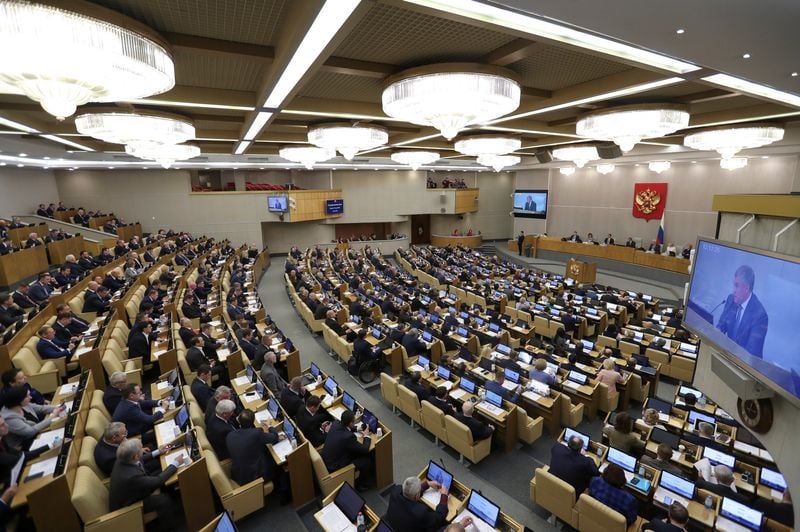MOSCOW (Reuters) - Russian lawmakers have submitted a draft bill to the State Duma that would rewrite a chapter of history by nullifying the Soviet decision in 1954 to transfer Crimea from Russia to Ukraine.
The move appears aimed at establishing a legal basis for Russia to argue that Crimea, the Black Sea peninsula which it claims to have annexed from Ukraine in 2014, was never really part of Ukraine to begin with.
The draft, submitted by a lawmaker from each of Russia’s two houses of parliament, describes the 1954 handover as arbitrary and illegal because no referendum was held and Soviet authorities had no right to transfer territory from one constituent republic to another without consent.



On what ground? is there any UN article that will legitimate it?
The USSR’s seat was never officially given to Russia - they sort of just kept occupying it and no one told them to stop.
At last somebody who engages intellectually with an answer, although I don’t see the truth of it. Do you have any any resources supporting your statement? At least according Article 23 of UN charter, it’s stated clearly of the five permanent members.
It’s official for the five countries, not given but acquired.
EDIT: I am interested in the real knowledge and fact, and I am never interested in bias and one-sided answer just to support one’s view. That not healthy academically.
Sorry, I’m not sure what you’re saying or asking here. Is this a question?
please provide references for your earlier statement. I think it is blatantly wrong. Please prove to me otherwise.
The passage you cited is a good start, as it still to this day states that the USSR is a member, and the USSR of course no longer exists. It seems quite unambiguous to me, to the extent that I’m not sure why you believe it supports your argument.
You can read this for more background if you like: https://www.chicagotribune.com/2022/02/28/ian-hurd-read-the-words-as-they-appear-russia-is-not-a-member-of-the-united-nations-security-council/
Because Russia is the sole continuation to USSR according to Alma-Ata Protocol in 1991?
From Just Security and for the subsequent quotes.
And during those days the members didn’t want to bring it up because that was the way they wanted it to happened and now suddenly we question their legitimacy because they have turned to be direct threats to us?
and…
Anyway, you can read the whole linked article. It is a good read for those who are interested in geopolitics and the non-bias.
Does any of that contradict my statement which triggered this tangent of yours? I said “The USSR’s seat was never officially given to Russia - they sort of just kept occupying it and no one told them to stop.”
These snippets from your citations say the same thing practically verbatim. I’m not sure why you’re so bent out of shape about this.
I’m not usually one to call someone else a shill but I think the person you’re replying to might be one. You’re 100 percent right and they seem hell bent on trying to legitimize Russia for some reason. Even though your comment isn’t even that confrontational.